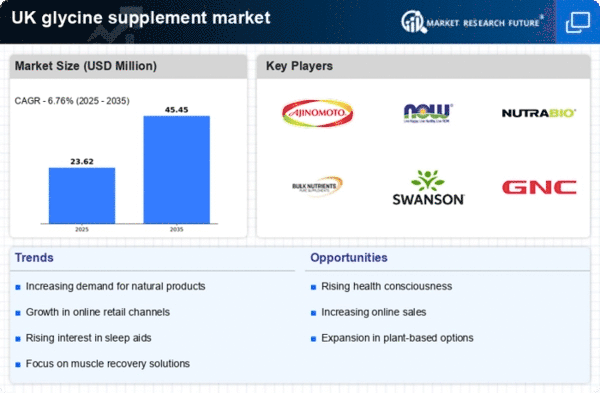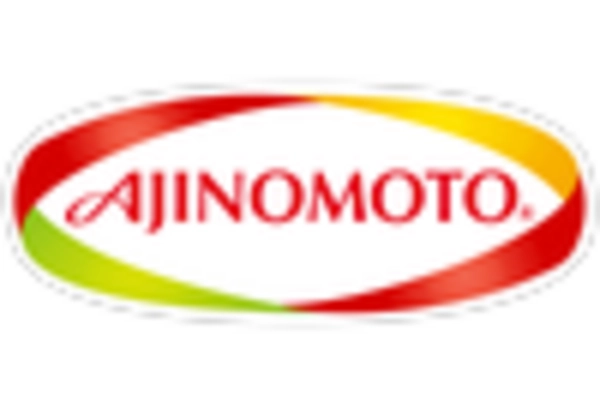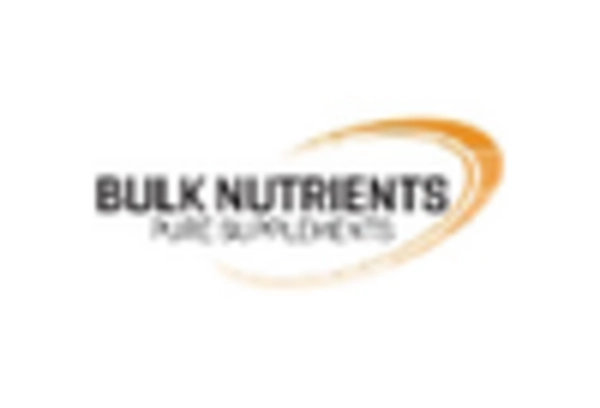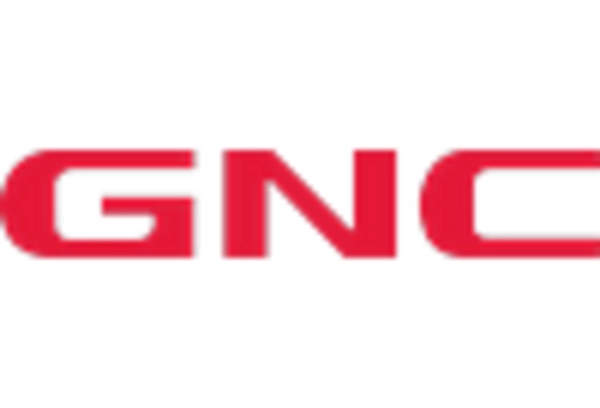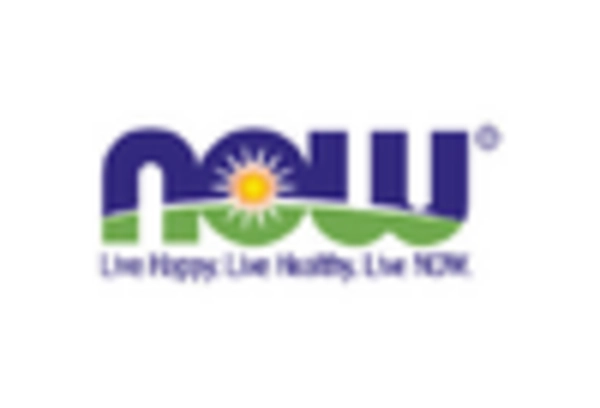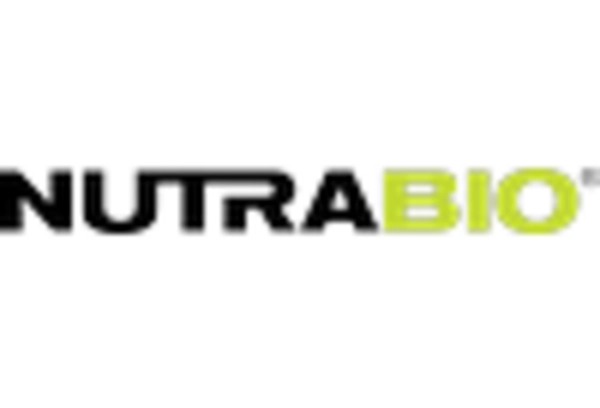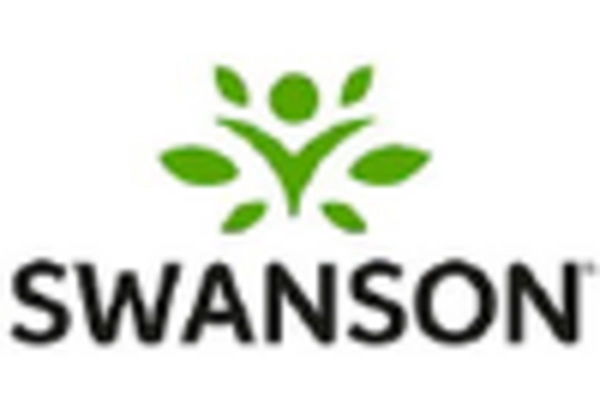Expansion of Retail Channels
The glycine supplement market in the UK is experiencing growth due to the expansion of retail channels. With the increasing availability of glycine supplements in health food stores, pharmacies, and online platforms, consumers have greater access to these products. This diversification of distribution channels is likely to enhance market visibility and convenience for consumers. Market data suggests that the online retail segment is particularly thriving, as e-commerce continues to reshape the shopping landscape. As more consumers turn to online platforms for their supplement needs, the glycine supplement market is expected to benefit from this trend, leading to increased sales and market penetration.
Shift Towards Preventive Healthcare
The glycine supplement market in the UK is influenced by a notable shift towards preventive healthcare. As individuals prioritize health maintenance over reactive treatments, the demand for supplements that support overall wellness is increasing. Glycine, known for its potential to enhance metabolic health and reduce inflammation, aligns well with this trend. The market data suggests that consumers are increasingly investing in supplements that contribute to long-term health benefits. This proactive approach to health management is likely to drive the glycine supplement market forward, as more people seek to incorporate glycine into their daily routines to prevent health issues before they arise.
Increased Awareness of Health Benefits
The glycine supplement market in the UK experiences growth due to heightened awareness regarding the health benefits associated with glycine. Research indicates that glycine plays a crucial role in promoting better sleep quality, enhancing cognitive function, and supporting muscle recovery. As consumers become more informed about these advantages, the demand for glycine supplements is likely to rise. The market is projected to expand as individuals seek natural alternatives to improve their overall well-being. This trend is further supported by the increasing prevalence of lifestyle-related health issues, prompting consumers to explore dietary supplements. Consequently, the glycine supplement market is poised for significant growth as awareness continues to spread.
Growing Interest in Personalized Nutrition
The glycine supplement market in the UK is influenced by the growing interest in personalized nutrition. As consumers seek tailored dietary solutions that meet their specific health needs, the demand for supplements like glycine is likely to rise. Personalized nutrition emphasizes the importance of individual dietary requirements, and glycine's versatility makes it an appealing option for various health goals. Market Research Future indicate that consumers are increasingly looking for supplements that align with their unique lifestyles and health objectives. This trend is expected to propel the glycine supplement market forward, as brands adapt their offerings to cater to the personalized nutrition movement.
Rising Popularity of Fitness and Wellness Trends
The glycine supplement market in the UK is benefiting from the rising popularity of fitness and wellness trends. As more individuals engage in regular physical activity and adopt healthier lifestyles, the demand for supplements that aid in recovery and muscle repair is increasing. Glycine is recognized for its potential to support muscle synthesis and reduce exercise-induced fatigue. Market analysis indicates that the fitness sector is expanding, with a growing number of consumers seeking products that enhance their performance and recovery. This trend is likely to bolster the glycine supplement market, as fitness enthusiasts turn to glycine as a valuable addition to their supplementation regimen.


